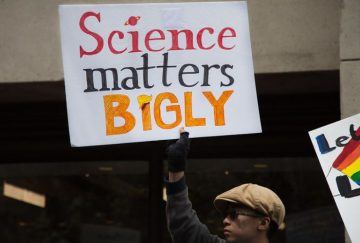Philip Kitcher in Boston Review:
 Even if all the world agreed on the reality of anthropogenic global warming and on the gravity of the consequences for life on our planet, further difficult questions would arise. How are the needs of future generations to be balanced against the sufferings of people living today? How exactly are the potential perils of a seriously heated earth to be avoided? How are the burdens and costs to be distributed? How is the international cooperation required to be forged and sustained? As Evelyn Fox Keller and I argue in The Seasons Alter (2017), all these questions need to be posed, distinguished, and answered if the human population is to extricate itself from the mess some of its members have made (often unwittingly, though today in full consciousness).
Even if all the world agreed on the reality of anthropogenic global warming and on the gravity of the consequences for life on our planet, further difficult questions would arise. How are the needs of future generations to be balanced against the sufferings of people living today? How exactly are the potential perils of a seriously heated earth to be avoided? How are the burdens and costs to be distributed? How is the international cooperation required to be forged and sustained? As Evelyn Fox Keller and I argue in The Seasons Alter (2017), all these questions need to be posed, distinguished, and answered if the human population is to extricate itself from the mess some of its members have made (often unwittingly, though today in full consciousness).
It would surely be easier to tackle them, though, if we stopped bickering about the causes and effects of climate change—the science that has been settled by consensus. We should be grateful, then, for a good answer to Oreskes’s question. It might also deliver, as a bonus, happily vaccinated children, shoppers who do not automatically flinch at the thought of food containing GMOs, and citizens who appreciate the Darwinian view of life. Oreskes’s answer appears in a schematic and abbreviated form near the end of her first chapter. Two features of science, she claims, account for its trustworthiness: its “sustained engagement with the world” together with “its social character.” Her emphasis on the second feature may surprise readers used to thinking of science as a tidy epistemic enterprise neatly insulated from social influence, but this view emerges clearly from her sober review of studies of science by historians, philosophers, sociologists, and anthropologists during the past half century.
More here.
